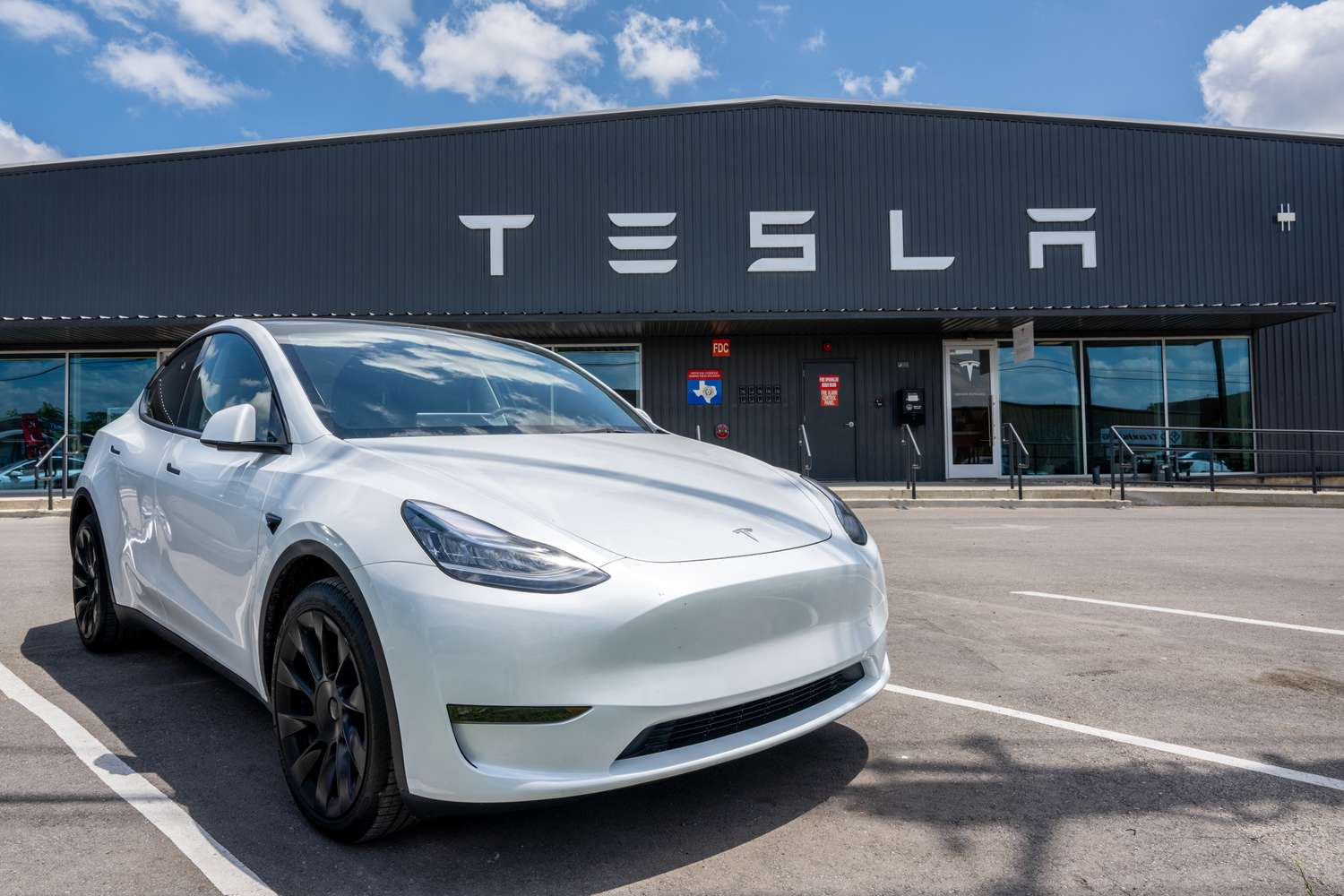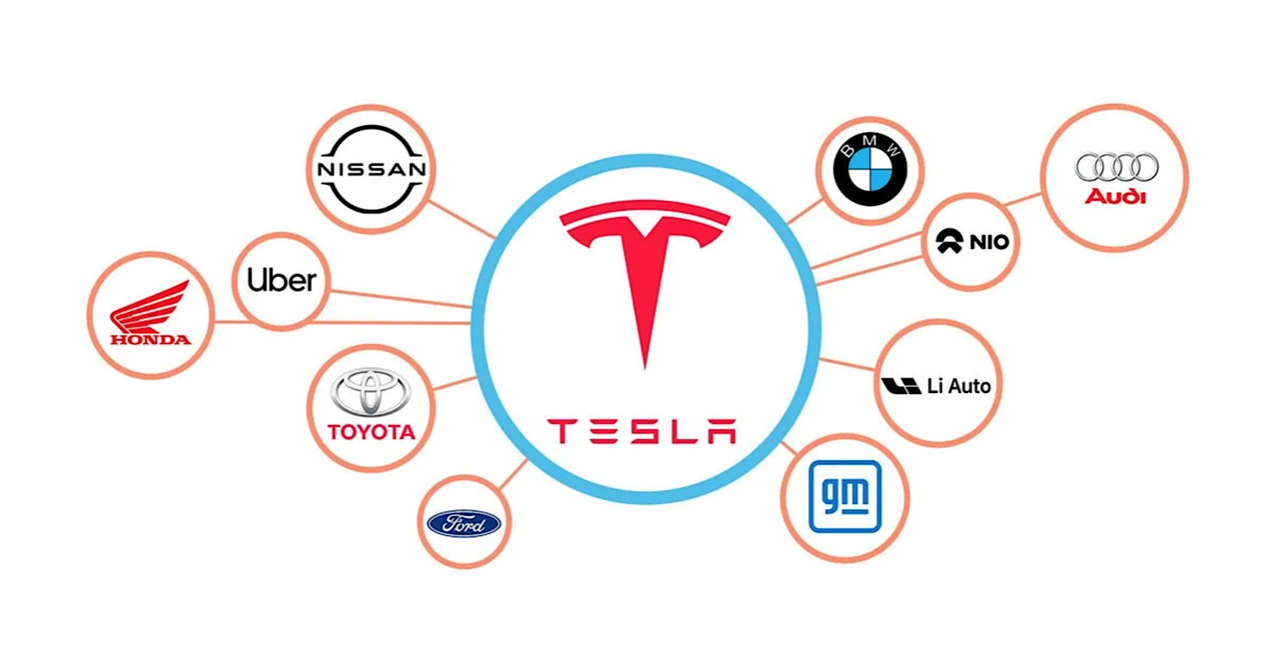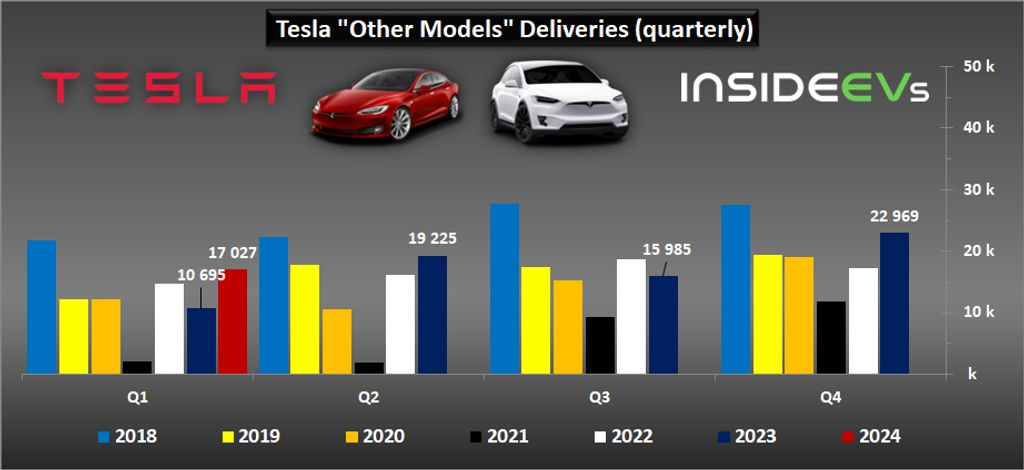Tesla has become the world's best-selling electric vehicle (EV) manufacturer, holding a 20% market share. This achievement is remarkable, considering the fierce competition in the EV market. The company's innovative strategies and popular models have played a significant role in this success.
Key Takeaways
- Tesla holds a 20% share in the global EV market.
- The Model Y is Tesla's best-selling model, making up over 70% of its sales.
- Tesla regained its top spot in Q1 2024 despite a 9% drop in year-over-year sales.
- Price cuts have impacted Tesla's profits but helped maintain competitiveness.
- Tesla and BYD together account for 35% of global EV sales, reshaping the market.
Tesla's Market Dominance in the Electric Vehicle Sector
Tesla's sales declined by 9% year-over-year in Q1 2024, but it still managed to regain the title of the best-selling BEV brand. Tesla's market share reached 20%, while BYD Auto held 15%. The Model Y was a significant contributor, accounting for more than 70% of Tesla's sales.
Impact of Model Y on Sales
The Model Y has been a game-changer for Tesla. It has not only boosted sales but also helped Tesla maintain its lead in the market. The Model Y's popularity is evident as it makes up a large portion of Tesla's overall sales.
Comparison with BYD Auto
BYD Auto is Tesla's closest competitor, holding a 15% market share. Together, Tesla and BYD account for 35% of all electric car sales in 2023. This dominance has significantly impacted the market share of major incumbents, which have been falling behind since 2015.
Road transport electrification is reshuffling cards in global markets, as carmakers compete fiercely to capture their share of a growing pie. BYD and Tesla remain far ahead of the curve, together accounting for 35% of all electric car sales in 2023.
Brand | Market Share Q1 2024 |
Tesla | 20% |
BYD Auto | 15% |
Geely Holdings | 8% |
Others | 57% |
Tesla's rise as a global front-runner has primarily dented the market share of major incumbents, which accounted for 55% of global electric car sales in 2015 but have been falling behind ever since.
Strategic Moves and Innovations by Tesla

Price Cuts and Their Effects
Tesla has made significant price cuts across its range of electric vehicles. This strategy aims to boost sales volume and maintain market share amidst increasing competition. By reducing prices, Tesla hopes to attract more customers who might have been deterred by the higher costs of electric vehicles. This move has had mixed results, with some models seeing a surge in sales while others have not performed as well.
Introduction of the Cybertruck
The much-anticipated Cybertruck is one of Tesla's boldest moves. This futuristic vehicle has generated a lot of buzz and pre-orders, showcasing Tesla's ability to innovate and capture public interest. The Cybertruck's unique design and advanced features are expected to set new standards in the electric vehicle market.
Technological Advancements
Tesla continues to lead in technological innovations, particularly in battery technology and autonomous driving. The company has invested heavily in research and development to improve the efficiency and performance of its vehicles. These advancements not only enhance the driving experience but also contribute to Tesla's competitive edge in the market.
Tesla is accelerating the release of new vehicle models in response to a significant decline in profits. Facing reduced demand and competition from more established carmakers, Tesla's strategic move to introduce new models aims to revitalise its market position.
Global Market Trends and Tesla's Position
The global Battery Electric Vehicle (BEV) market has been expanding rapidly. In 2023, electric car sales were 3.5 million higher than in 2022, marking a 35% year-on-year increase. This growth is more than six times higher than in 2018, just five years ago. The increasing adoption of electric vehicles is reshaping the automotive industry, with more consumers opting for sustainable transport options.
Tesla's Performance in Key Regions
Tesla has managed to regain its position as the best-selling BEV brand in Q1 2024, capturing 20% of the market share. This achievement highlights Tesla's strong presence in key regions, including North America and Europe. The company's ability to maintain high sales volumes, despite growing competition, underscores its robust market strategy and brand appeal.
Competitive Landscape
The competition in the electric vehicle market is fierce, with Tesla and BYD Auto leading the charge. Together, they accounted for 35% of all electric car sales in 2023. This is more than all the major carmakers outside China combined, which hold just above 30% of the market share. The rise of these two companies has significantly impacted the market share of traditional carmakers, who have been struggling to keep up with the rapid pace of electrification.
The shift towards electric vehicles is not just a trend but a significant transformation in the automotive industry. As more players enter the market, the competition will only intensify, pushing companies to innovate and offer better value to consumers.
Challenges Faced by Tesla

Decline in Year-over-Year Sales
Tesla has seen a decline in year-over-year sales, which is a significant challenge for the company. Despite having the bestselling EV in history, the Model Y, the company has faced hurdles in maintaining its sales momentum. This decline has raised questions about whether Tesla can continue to dominate the market.
Profit Reductions in 2023
In 2023, Tesla experienced a reduction in profits. This was partly due to increased competition and the need to cut prices to stay competitive. The profit reductions have made investors wary, even though Tesla's stock has shown resilience.
Increasing Competition
The electric vehicle market is becoming more crowded, with many new players entering the field. This huge competition is forcing even Tesla to rethink its strategies. The company has had to cut prices to keep selling its cars, which has put pressure on its profit margins.
As the electric carmaker sees sales fall and cuts jobs, we take a closer look at its problems.
Tesla's challenges are not just limited to sales and profits. The company also faces increasing competition from other electric carmakers, which is making it harder to maintain its market share.
Tesla's Influence on the EV Market

Impact on Traditional Carmakers
Tesla's rise has significantly impacted traditional carmakers. As Tesla's stature grew in the market, many established brands found themselves struggling to keep up. The shift towards electric vehicles (EVs) has forced these companies to rethink their strategies and invest heavily in EV technology.
Role in Road Transport Electrification
Road transport electrification is reshuffling cards in global markets, as carmakers compete fiercely to capture their share of a growing pie. BYD and Tesla remain far ahead of the curve, together accounting for 35% of all electric car sales in 2023. This is more than all the major carmakers outside China combined (just above 30%), and more than all the other Chinese carmakers (just under 30%).
What is good news from a sustainability perspective is the direction of travel when it comes to EV adoption, and increased competition and lower cost of ownership can only tip more consumers to ditch traditional vehicles.
Market Share Dynamics
Tesla's market share has seen fluctuations over the years. In 2022, Tesla had a 62% share of the EV market in the United States. However, by the second quarter of 2023, Tesla's share of the U.S. electric vehicle market fell below 50% for the first time, dropping to 49.7% from 59.3% a year earlier. Despite these changes, Tesla continues to be a dominant player in the EV market.
Year | Tesla's U.S. Market Share |
2022 | 62% |
2023 | 49.7% |
Tesla's influence on the EV market is undeniable, and its actions continue to shape the industry's future.
Future Prospects for Tesla
Predicted Market Trends
Tesla is projected to deliver around 2.25 million vehicles in 2024, a slight increase from the previous year. The company's focus will be on ramping up production and meeting the growing demand for electric vehicles. Analysts are optimistic about Tesla's future, expecting steady growth in the coming years.
Potential New Models
Tesla says it will build more affordable electric vehicles — perhaps as soon as 2025. This move aims to make electric cars accessible to a broader audience, refuting recent reports that Tesla CEO Elon Musk had cancelled plans for a budget-friendly model. The introduction of these new models could significantly boost Tesla's market share.
Sustainability Goals
Tesla aims to release cheaper cars by the end of 2024 or in early 2025, well ahead of the late-2025 timing it had previously announced. This aligns with Tesla's commitment to sustainability and reducing the cost of ownership for consumers. The company's efforts in this area are expected to drive more consumers to switch to electric vehicles.
Tesla's future looks promising with its focus on innovation, affordability, and sustainability. The company's strategic moves are likely to keep it at the forefront of the electric vehicle market.
Conclusion
Tesla's journey to becoming the world's best-selling electric vehicle manufacturer with a 20% market share is a testament to its innovation and resilience. Despite facing stiff competition from companies like BYD and Geely, Tesla has managed to stay ahead, thanks to popular models like the Model Y. The electric vehicle market is rapidly evolving, with more players entering the field and existing ones ramping up their efforts.
At PIF Capital, we fast-track investors, SMEs, and business owners with the power to earn higher profits through IPO (initial public offering).

Jonathan Por; our Founder and Chairman of PIF Capital is a serial entrepreneur with 30 years of experience. Throughout the years at PIF Capital, we have built an exclusive capital community with over 40,000 SME community members, and share formulas created by PIF Capital such as the CPTK(Capital, Professional, Talent, Keymanship) model, 3F(Friend, Family, Fans) model, and the ABC(A+ entrepreneur, Business model, Capital) model.
As road transport continues to shift towards electrification, Tesla's ability to adapt and innovate will be crucial in maintaining its leading position. The future of electric vehicles looks promising, and Tesla is well-positioned to continue playing a significant role in this transformative journey.
Frequently Asked Questions
How much market share does Tesla have in the electric vehicle market?
Tesla holds a 20% market share in the electric vehicle market, making it the top-selling brand globally.
Which Tesla model is the best-selling?
The Tesla Model Y is the best-selling model, accounting for more than 70% of Tesla's sales.
How did Tesla regain its top spot in Q1 2024?
Despite a 9% decline in year-over-year sales, Tesla regained its position as the best-selling BEV brand in Q1 2024.
What impact did price cuts have on Tesla's profits?
Price cuts led to a 44% drop in Tesla's profits in Q3 2023 compared to the previous year.
Who are Tesla's main competitors?
Tesla's main competitors are BYD Auto, which holds a 15% market share, and Geely Holdings, with an 8% market share.
What is Tesla's role in road transport electrification?
Tesla has played a significant role in promoting road transport electrification, influencing both traditional carmakers and the overall market dynamics.
